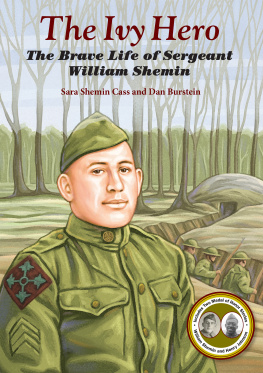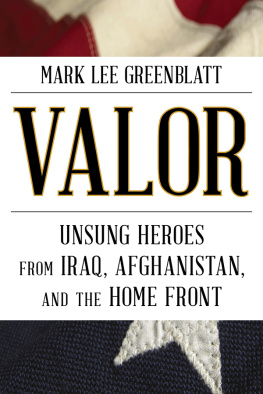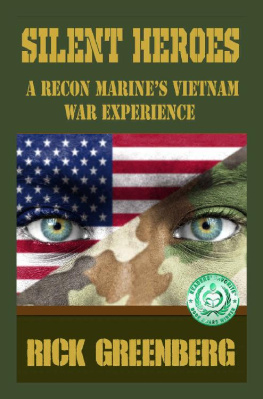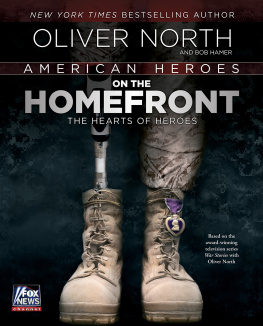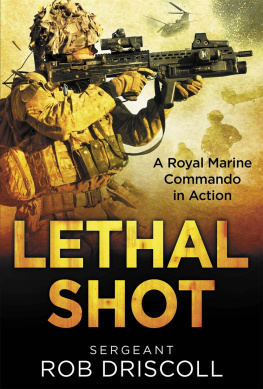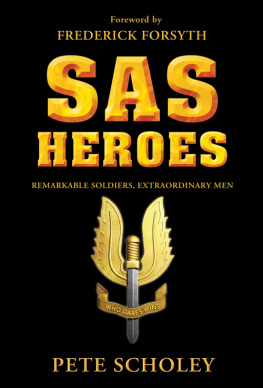


THIS PHOTO IS OF MY FATHER, PFC EDWARD F. DEVANEY,
ESCORTING A GERMAN PRISONER HE HAD JUST
SAVED FROM AN ANGRY FRENCH MOB.
DEVANEY FAMILY ARCHIVE


Naval Institute Press
291 Wood Road
Annapolis, MD 21402
2015 by David K. Devaney
All rights reserved. No part of this book may be reproduced or utilized in any form or by any means, electronic or mechanical, including photocopying and recording, or by any information storage and retrieval system, without permission in writing from the publisher.
Library of Congress Cataloging-in-Publication Data
Devaney, David K.
They were heroes : a sergeant majors tribute to the combat marines of Iraq and Afghanistan / SgtMaj David K. Devaney, USMC (Ret.).
pages cm
ISBN 978-1-61251-793-3 (ebook) 1. Iraq War, 20032011Biography. 2. Afghan War, 2001 Biography. 3. MarinesUnited StatesBiography. 4. United States. Marine CorpsBiography. I. Title.
DS79.766.A1D48 2014
956.7044345092273dc23
2014042911

 Print editions meet the requirements of ANSI/NISO z39.48-1992
Print editions meet the requirements of ANSI/NISO z39.48-1992
(Permanence of Paper).
23 22 21 20 19 18 17 16 15 9 8 7 6 5 4 3 2 1
First printing

CONTENTS

A lthough the following story is not the reason I wrote the book, it was the beginning. I wrote this wounded-warrior story because I wanted to remember these warriors. This led to me telling their stories over and over. I continued to write because I enjoy it and enjoy telling the stories of heroes. There is honor in their deeds, but only if we remember those deeds. We cannot forget these amazing warriors, heroes and Americans.
On 15 September 2005 my long-time friend 1st Sgt Carl Gantt and I went to the former Bethesda National Naval Medical Center in Maryland to visit some of our combat-wounded warriors. I was very apprehensive about the visit because I was not sure how the warriors, family members, or hospital staff would react to our presence. I expected some of the warriors to be proud, some to be mad, and some to be frustrated. I had heard stories of wounded warriors becoming upset with random visitors because, as Sgt James Gill once told me, they felt like they were a part of a petting zoo. In general, the wounded warriors do not want pity; they want understanding and compassion. There is no way to empathize with an amputee unless you are also an amputee. They do not want sympathy. I have been to many facilities to visit with wounded warriors over the years. Usually I just get them talking. Once I have gained their trust and respect with my own experiences, I always ask them what happened. The best psychological therapy for warriors, not just wounded warriors, is to talk. Some will talk openly only with those whom they believe can understand their time in combat.
The first Marine we visited that September day was a thirty-two-year-old corporal (amphibious assault vehicle crewman) with a traumatic brain injury due to an improvised explosive device (IED) blast (approximately 30 percent of his skull was missing). He was unable to speak but could squeeze his mothers hand in response to questions. I was unable to ascertain exactly what happened. The family (mother and wife) had an amazingly positive attitude. I was astounded at the support this Marine was getting.
The second Marine was an eighteen-year-old private first class (infantryman) who was a turret machine gunner on an up-armored highly mobile multiwheeled vehicle (HMMWV). He was injured when his vehicle rolled over him during an accident. He had a broken collarbone, broken left leg, and broken pelvis (in five places). The doctors had to remove his liver, gallbladder, and spleen. The Marine told me that he was not upset; he just wanted to recover and get back to Iraq and his unit. His mother, father, and sister were present and seemed to be in good spirits. They supported him in everything he said. His parents said he was expected to make a full recovery. He stated he plans to stay in the Marine Corps and return to his unit. Although the Marine and his family had a very positive attitude, I do not believe he will recover for a very long time.
The third Marine was a nineteen-year-old lance corporal (infantryman) who was injured by an IED while conducting a foot patrol. He was missing his right leg below the knee and had a hole through his left hand. He complained that doctors wanted to remove the fingers from his left hand, but that he finally convinced them to try to save his fingers. He also complained about severe phantom pain where his leg was missing. He stated that he would be moving to the Walter Reed Army Medical Center (now merged with the Bethesda National Naval Medical Center) in two weeks to receive a prosthetic leg and begin therapy. He also stated that he planned to be running and swimming within the next year. He wanted to return to his unit but knew it would not happen. He stated that he felt guilty that he was in the United States while his friends were still in combat. His lovely young wife was very shy, but she did answer my questions. This young man plans to remain a Marine but will more than likely need to change his military occupational specialty. With his attitude, I believed he would be able to remain in the Marine Corps and do well.
The fourth Marine was a twenty-one-year-old corporal (infantryman) who was injured by an IED while conducting a foot patrol (the same patrol and IED that injured the third Marine). He was missing his right leg below the knee and his entire right arm, all the way into his torso. He stated that he would be moving to the Walter Reed Army Medical Center in two weeks to receive a prosthetic leg and prosthetic arm, and he was looking forward to beginning his therapy. He wanted to remain in the Marine Corps and go to units to give speeches about combat. He expressed his feeling that he felt guilty that he might have been responsible for the injuries to the third Marine because he was the fire team leader. He stated that if he had only done things differently, it wouldnt have happened. After hearing the story, I told him that he had done nothing wrong. He also expressed he felt guilt that he was in the United States while his friends were still in combat. His wife, also a Marine, was absolutely wonderful; she supported him 100 percent.
The fifth and final patient we visited was a twenty-year-old Navy hospital corpsman (attached to a Marine explosive ordnance disposal [EOD] team) who had been shot in the left leg by an insurgent sniper. The bullet went cleanly though his bone, leaving a hole but luckily not breaking the bone. The exit wound was massive and needed a skin graft. He was shot while providing medical support to a wounded Marine from his EOD unit. He had a 99.9 percent chance of a full recovery and said he wanted to return to his unit as soon as possible. His stepfather was with him and also had a wonderful attitude about the situation. The corpsman stated that he felt guilty that he was in the United States while his friends were still in combat. I felt he would be able to return to his unit and do well.
Next page

